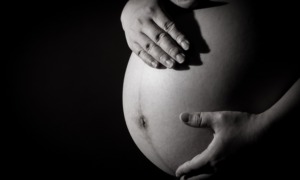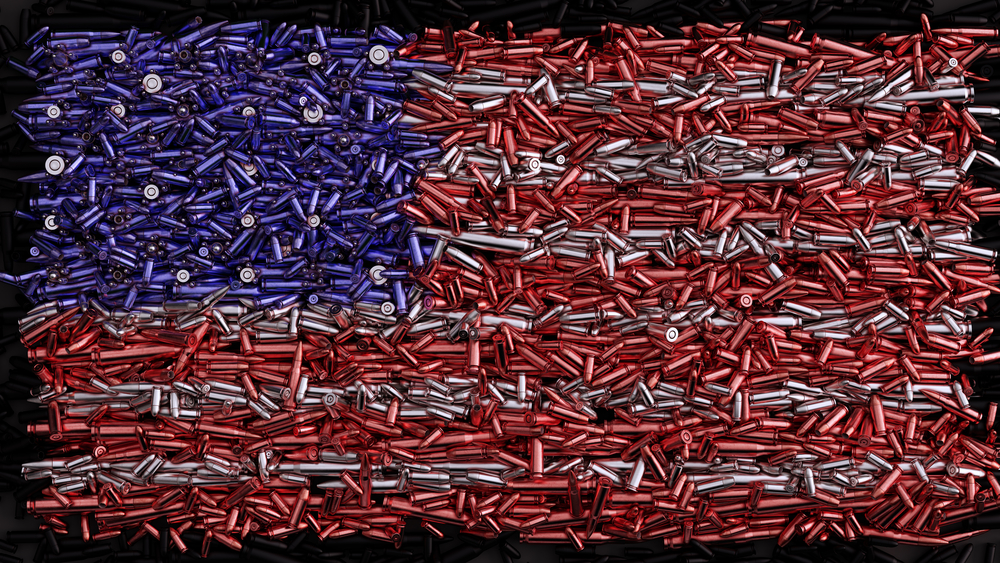
80sChild/Shutterstock
.
The mother left and two teens were alone in the house. It took the 13-year-old son 10 minutes to find the gun. It was loaded and in a bottom dresser drawer covered by one piece of clothing. It might as well have been on the fireplace mantle.
The 13-year-old shot his 14-year-old cousin in the chest, killing him. The circumstances remain unclear.
The death of JaJuan McDowell, an eighth grader who wanted to be a veterinarian, is not unusual. On a daily basis children under 17 are shooting victims. JaJuan died April 7, 2016 in Savannah, Ga.
So-called accidental deaths in the U.S. are rising as gun ownership increases. There are an estimated 300 million guns in the U.S. Firearm deaths are the second-leading cause of death among children in the U.S. and the leading cause of death for African-American children, according to data from the nonprofit Everytown for Gun Safety.
Twenty-one children and teens up to age 17 are shot every day, the Center for Disease Control and Prevention’s National Center for Injury Prevention reports. Eight children of the 21 are shot in instances of “family fire,” which involves an improperly stored gun. Of the 7,782 children and teens ages 1-17 shot every year, 86 are killed unintentionally.
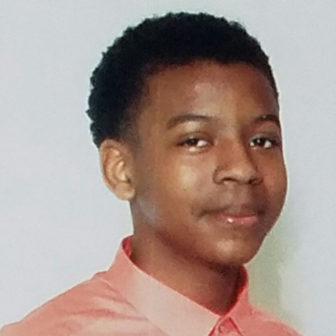
Family photo
JaJuan McDowell of Savannah, Ga., wanted to be a veterinarian. He died at 14.
That JaJuan’s accident happened in the South is no accident.
A study by the Johns Hopkins Bloomberg School of Public Health found that seven states — Alabama, Arkansas, Kentucky, Louisiana, South Carolina, Tennessee and West Virginia — had disproportionately high rates of unintentional firearm deaths compared to other states.
Those seven do not have laws requiring the safe storage of guns.
“The culture [of guns in the South] is a battle,” said Julvonnia McDowell, JaJuan’s mother, who has become a fierce advocate for gun safety for children. “If we continue to do the work we are doing we can get to the heart of at least some people. Some people you are not going to be able to break their belief in how they feel about guns.”
In her community talks, McDowell pleads with parents to ask questions before play dates in other children’s homes: “Is there a gun in the house? If so, where is it? Is it locked up?”
These are especially hard questions in the South, where gun rights are staunchly protected. The gun owner may answer tersely, “It’s none of your business.”
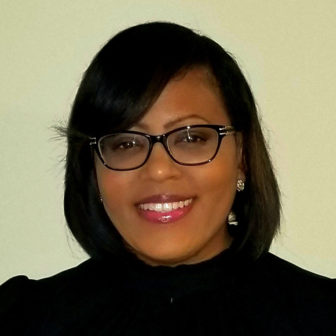
Julvonnia McDowell
Explaining the number of guns in the South is not just a matter of the Second Amendment. Hunting in the Southern states is extremely popular — both for sport and as a source of food. Shotguns and rifles are handed down from generation to generation.
Georgia Gov. Brian Kemp famously brandished a shotgun in a political commercial to playfully warn his daughter’s suitor against any hijinks.
An ordinance in Kennesaw, Ga., an Atlanta suburb, declares “every head of household residing in the city limits is required to maintain a firearm.”
Gun safety advocates who favor more restrictive gun laws point to child access laws, or lack thereof, for unintentional shootings in the South.
Child access laws are significant because, according to an Everytown study, 75% of children know where the gun is in the house. If they don’t know where it is they can stumble on it looking for hidden Christmas gifts, or just being curious about what’s behind “that” door. Research from the Giffords Law Center found 73% of children under 10 knew where the gun was in the house and that 35% of those children had handled the gun.
“Kids are curious,” McDowell said. “They can find change in the couch. They can find the gun in the house.”
Everytown runs a daily log of unintentional gun events involving children. From May 10 to June 1, 2019, there were 23 of these events. Fourteen of the 23 deaths or woundings were in 13 Southern states. Nine were in the other 37 states and the District of Columbia.
Massachusetts is the only state that requires that a gun be stored with a lock in place. California, Connecticut and New York require the gun to be locked only if the gun owner lives with someone prohibited from having a gun under state or federal law.
A 2018 survey by the Journal of Urban Health showed that an estimated 4.6 million children live in a household where there is a gun locked and loaded.
[Related: Atlanta Expert Says ‘Great Gun Divide’ Can Suffocate Safety Lessons]
Gun violence can happen anywhere. On Dec. 31, 2009, Marquel Peters, 4, was sitting in a pew in his church in Decatur, Ga., when a falling bullet came through the roof of his church and struck him on the top of the head. He died. Police said the bullet came from an AK-47 fired for celebratory reasons on New Year’s Eve. In 2005, a college football fan watching the Peach Bowl in the Georgia Dome was struck below the knee by a bullet that came through the stadium roof, another case of celebratory fire.
There are more reasons for guns to be present in society than we think about. The Second Amendment is only one of those reasons. Culture, dominance, hunting all factor in.
Hunting
Chuck Oliver, a popular Atlanta sports talk radio host, grew up in suburban Atlanta and got his first gun when he was 8. His indoctrination on how to handle a gun was a process, much like learning to drive a car, he said.

Chuck Oliver
“When you were 16 years old, you just didn’t get behind the wheel of the car and off you went with no idea what you were doing,” Oliver said. “You watched your parents drive for years and you had an idea what to do when it came time.
“It is the same with guns. You have a learning period on how to safely handle that weapon. I think today, kids are outside much less and they are not getting that valuable time learning how to handle a gun, if their family is so inclined. That can lead to accidents.”
Hunting accidents in the South are routine because the climate is suitable for outdoor sports. There are simply more guns and more opportunity for gun accidents.
In February 2019, Benjamin Preston Brown, 61, of Louisville, Ala., was killed by his hunting partner, who mistook Brown for a deer.
In January 2019, an 11-year-old boy in Orrville, Ala., died from a gunshot to the head while on a hunting weekend with his family. The boy was alone in a cabin when his rifle went off in what authorities said was an accident.
In January 2014 there were four fatal hunting accidents in Alabama in one month.
White vs. black
It is telling that pro-gun measures are typically supported by Southern white legislators while gun control measures are typically supported by Southern black urban legislators. The urban politicians in places like Atlanta; Birmingham, Ala.; Memphis, Tenn., and New Orleans understand the toll guns take in the black communities of the South. The white legislators often cite “protection” for opposing stricter gun laws.
The Rev. William E. Flippin Jr., the senior pastor of Emmanuel Lutheran Church in Atlanta, said the Second Amendment is cover for the reason many Southerners want guns. The gun debate, he said, is an extension of 200-plus years of whites feeling threatened and intimidated by blacks. Slave patrols were armed as they chased “runaways.” Blacks were forbidden to have guns. Gradually, as a means of self-protection, blacks armed themselves.
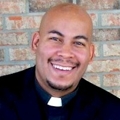
Rev. William Flippin Jr.
“It is beyond the Second Amendment that throughout history some have justified a use of firearms against persons they don’t want to be here,” Flippin said. “We have seen these in cases of Trayvon Martin and unarmed and armed black men in particular being gunned down because they were intimidating by the nature of being black. Gun violence is a way to enforce that. This has gone on throughout time. The Second Amendment is the protection of those subtle ideals.”
White dominance over blacks in the South with guns has been documented for decades. In 1970, American Heritage magazine, an authority on U.S. culture, wrote this about guns in the South:
“In the historic system of the South, having a gun was a white prerogative. From the days of colonial slavery, when white indentured servants were permitted, and under some circumstances encouraged, to have guns, blacks, whether slave or free, were denied the right. The gun, though it had a natural place in the South’s outdoor culture, as well as a necessary place in the work of slave patrols, was also an important symbol of white male status.”
“They say you’ve got to love something,” Louisiana state Rep. Barbara Norton, a gun owner and Democrat, told MSNBC in 2013. “Some people here love their guns more than they love anything else.”
But it’s not just the South where there is fierce pushback for gun rights. States like Alaska, Kansas and Missouri have tried to pass so-called “nullification” bills declaring that federal gun laws do not apply in their states. In Pennsylvania in 2013, 76 state legislators co-sponsored a measure that would have invalidated any new federal ban of certain weapons or ammunition.
The role of clergy
Flippin is part of a grassroots organization, Outcry, which is bringing together clergy in Georgia to advocate for what he calls “common-sense gun laws.” Clergy in the South still carry weight throughout the week, not just on Sunday, he said.
“We have to make sure that legislators legislate common-sense laws that will better the community, whether that’s gun control or background checks,” Flippin said. “Pastors must be at the forefront of those conversations and be spiritual lobbyists so that politicians are scared to death that their elected status will be threatened if they don’t at least have a conversation about common-sense gun laws.
“We need to throw our collars in the garbage if we are not committed to this.”
Graham Younger, a staff attorney and state manager in Georgia for Faith in Public Life, which works with Outcry, said too much of the public’s focus is on major shooting events, like Parkland, and not enough on the day-to-day tragedies.
“We want people to look a little less at those big events and a little more at the people who die every single day because of guns, the toddlers that die every single day,” Younger said. “Outcry is trying to change that conversation from ‘good guy with a gun and bad guy with a gun’ to ‘we are a nation with a lot of guns.’”
Faith in Public Life, which is based in Washington, D.C., maintains there are issues, like guns, that clergy do not get credit for thinking about and trying to address. There are 300 clergy in Georgia involved with Outcry.
“We want to make sure that progressive people of faith are having their voices heard,” Younger said.
U.S. Rep. Lucy McBath, a Georgia Democrat whose 17-year-old son was shot and killed in 2012, has been a fierce advocate of gun control in Georgia and the U.S. She was a supporter of House Bill 8, which would require federal background checks for all gun purchases. It was passed by the House in February but is not likely to pass the Republican-held U.S. Senate.
JaJuan McDowell would be entering his senior year in high school. He would be picking a veterinary school for college. JaJuan had so much to give his mother said. So, do your child a favor, she begs.
Just ask, even if you live in the South: Is there a gun in the house?




